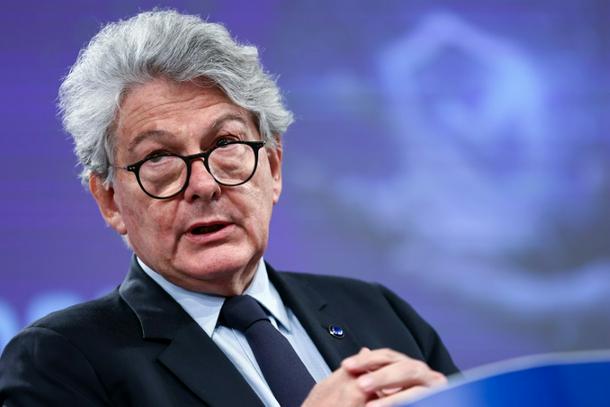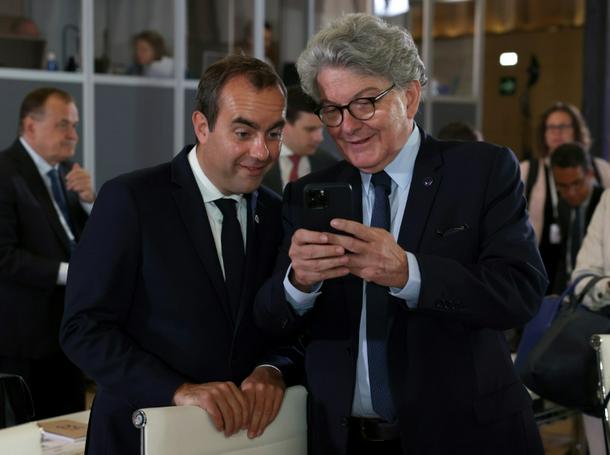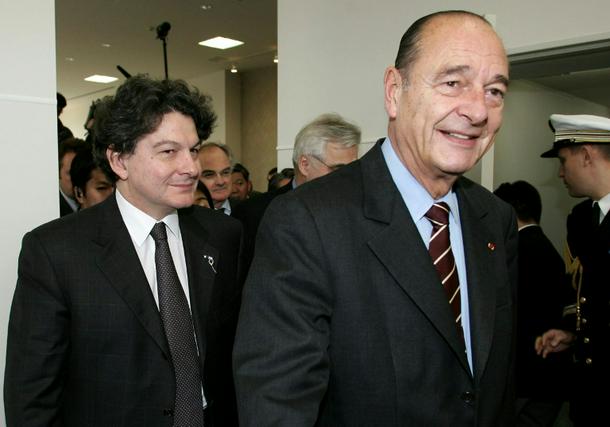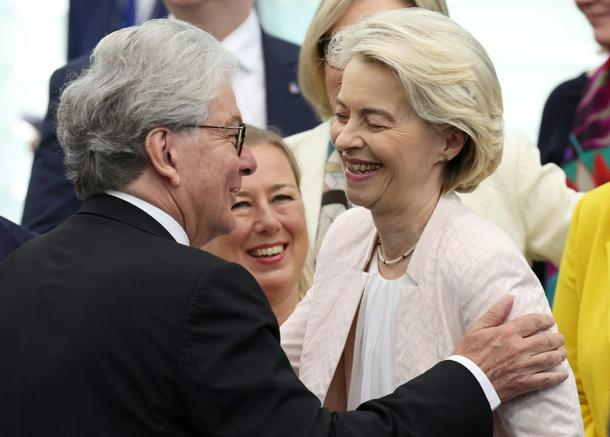
Thierry Breton was the EU's internal market commissioner
Brussels (Belgium) (AFP) - France’s Thierry Breton became one of the European Union’s most prominent faces in Brussels, gaining the reputation of a disrupter as he clashed with tech giants – and even his own boss.
That strained relationship with EU chief Ursula von der Leyen was at the centre of the outspoken and spotlight-seeking Breton’s dramatic resignation Monday from the European Commission.
With his distinctive, salt and pepper mane and his thick-framed black eyeglasses, his influence in Brussels was wide-ranging.
The bloc’s internal market commissioner since 2019, he oversaw a defence industry push and marshalled the production of Covid jabs.
But he was better known for taking a hard line against abuses by the world’s biggest digital platforms – even sparring publicly with the billionaire boss of X, Elon Musk.
A former CEO of French tech and telecom firms, Breton was the first major business leader to arrive in the cosy world of the European Commission, the EU’s executive arm.

Breton mastered the art of a quick quip on social media
He frequently gave media interviews and fired off quick quips on social media, building on his desire to be seen as an effector of change.
The centrist was outspoken in challenging von der Leyen – and caused a stir earlier this year by publicly questioning the depth of support for her reelection within her centre-right European People’s Party.
Breton also questioned her “transparency and impartiality” over the appointment of a political ally to a highly-paid post as small and medium-sized enterprises envoy.
- Tech enforcer -
The 69-year-old was seen by Paris as a key counterweight to Berlin’s influence at the heart of the EU.
But, an engineer by training, Breton, did not have a smooth path into the commission.
The former French finance minister was French President Emmanuel Macron’s second choice after a scandal surrounding his first.
His media prominence confounded some since Breton is not as eloquent an orator as other top officials in Paris and Brussels.
He was at times mocked for the length of his speeches and for the multiple ideas he introduced all at once in a disorderly fashion.
But he was in his element when he talked about digital issues and industry, after serving for several years as the head of several large French companies including France Telecom – now Orange – and Atos.

Breton was former French finance minister under ex-president Jacques Chirac
The resigning commissioner once had a wafer of semiconductor material in his hand as he launched into a long, technical explanation of electronic chips.
The EU’s landmark laws taking on mainly US-based web giants, the Digital Services Act (DSA) and the Digital Markets Act (DMA), are among Breton’s biggest achievements.
The rules demanded better policing of content online and curbed the market powers of companies, like Amazon, Apple, Google, Meta and Microsoft.
“It’s time to put some order in the digital ‘Wild West’”, he said in 2022.
Breton even went to see Musk in Texas to explain the rules that he would have to follow under the DSA. They were all smiles in a video that went viral.
- Wily figure -
Breton, a former professor of corporate governance at Harvard University and author of several science fiction novels, wanted a more sovereign Europe to better defend its interests against challenges from China and the United States.
His thinking was often in line with the French government, but he frequently insisted he spoke for Europe and not just Paris.
During the coronavirus pandemic, when the United States and Britain had successful deliveries of vaccines in 2021, the EU had fallen behind.

France's Thierry Breton had a strained relationship with European Commission President Ursula von der Leyen
Von der Leyen appointed Breton to lead a task force to fix the situation, and his knowledge of the world of business came in handy.
With factory visits and frequent dialogue with pharma bosses, he faced down the Americans who blocked key components by threatening retaliation.
A wily figure, he had been tipped to get a promotion to be a commission vice president stewarding industrial growth, under von der Leyen’s second term.
Instead he rocked Brussels by surprisingly quitting with immediate effect, claiming von der Leyen had sought at the last-minute to bar him from her incoming team.